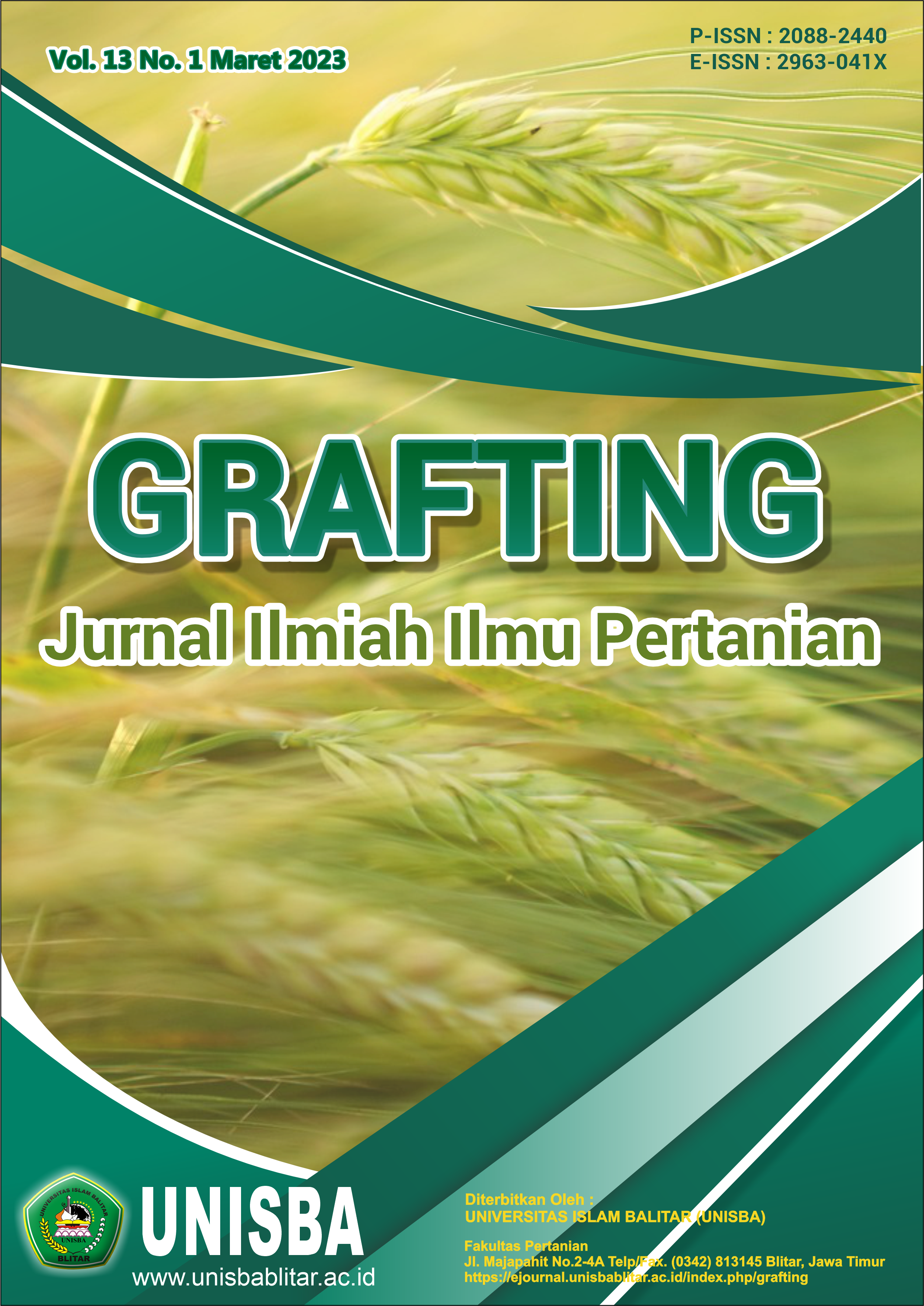RESPON PERTUMBUHAN DAN HASIL TANAMAN KEMANGI (Ocimum sanctum L) TERHADAP PEMBERIAN PUPUK ORGANIK DAN ARANG SEKAM SEBAGAI MEDIA TANAM
DOI:
https://doi.org/10.35457/grafting.v13i1.2708Keywords:
Basil, organic pertoganic fertilizer, husk charcoal.Abstract
This research was conducted to determine the response of growth and yield of Basil (Ocimum Sanctum L.) to the application of organic fertilizer and husk charcoal as a planting medium. This study used a factorial Randomized Block Design (FRBD) which was designed using 2 factors and was repeated 3 times. Factor 1 is the application of organic Petroganik fertilizer with 3 levels, namely: P1 = 5 g/plant. P2= 5.5 g/plant. P3= 6 g/plant. While factor 2 is the provision of husk charcoal as a planting medium with 3 levels, namely: A1 = Soil and husk charcoal 3:1. A2= Soil and husk charcoal 2:2. A3= Soil and husk charcoal 1:3. From these two factorials, 9 treatment combinations were obtained. The treatment was repeated 3 times and obtained 27 treatment combination units. The variables observed included plant height, number of leaves, number of branches, and fresh weight. The results of the analysis of variance showed that there was a significant effect on the combination of treatment with husk charcoal as a planting medium and the addition of organic fertilizer on all observation variables (plant height, number of leaves, number of branches, and fresh weight).
Downloads
Published
Issue
Section
License
Authors who publish with this journal agree to the following terms:
- Copyright on any article is retained by the author(s).
- The author grants the journal, right of first publication with the work simultaneously licensed under a Creative Commons Attribution License that allows others to share the work with an acknowledgment of the work’s authorship and initial publication in this journal.
- Authors are able to enter into separate, additional contractual arrangements for the non-exclusive distribution of the journal’s published version of the work (e.g., post it to an institutional repository or publish it in a book), with an acknowledgment of its initial publication in this journal.
- Authors are permitted and encouraged to post their work online (e.g., in institutional repositories or on their website) prior to and during the submission process, as it can lead to productive exchanges, as well as earlier and greater citation of published work.
- The article and any associated published material is distributed under the Creative Commons Attribution-ShareAlike 4.0 International License










